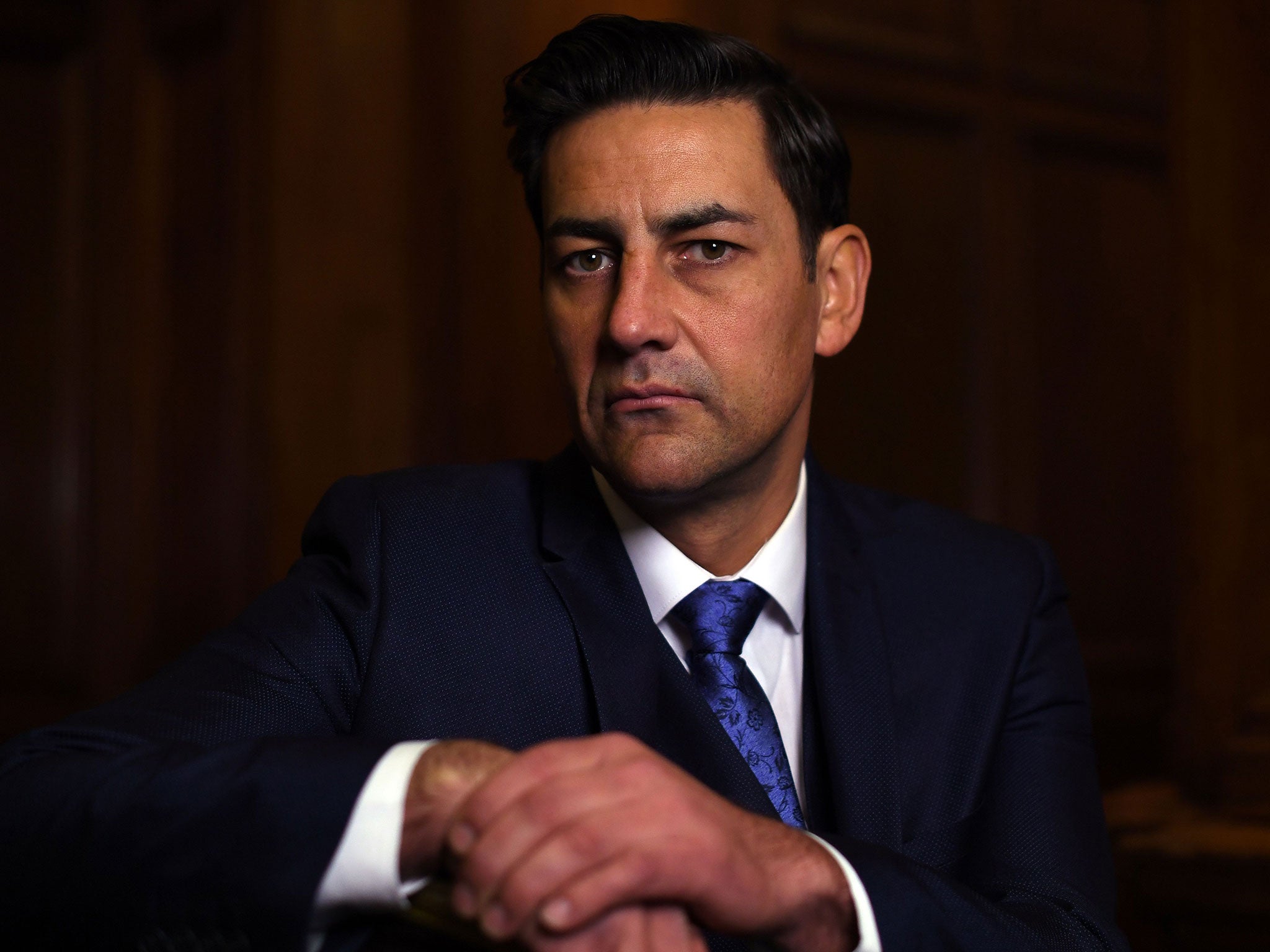Members of team reviewing historic football abuse undertaking psychological counselling
It is understood that evidence of the long-term effects on survivors, such as suicide attempts and substance abuse, has been particularly tough to deal with

Your support helps us to tell the story
From reproductive rights to climate change to Big Tech, The Independent is on the ground when the story is developing. Whether it's investigating the financials of Elon Musk's pro-Trump PAC or producing our latest documentary, 'The A Word', which shines a light on the American women fighting for reproductive rights, we know how important it is to parse out the facts from the messaging.
At such a critical moment in US history, we need reporters on the ground. Your donation allows us to keep sending journalists to speak to both sides of the story.
The Independent is trusted by Americans across the entire political spectrum. And unlike many other quality news outlets, we choose not to lock Americans out of our reporting and analysis with paywalls. We believe quality journalism should be available to everyone, paid for by those who can afford it.
Your support makes all the difference.Members of the legal team involved in the review into historic sexual abuse in English football have undertaken psychological counselling, such has been the harrowing nature of the details of the work.
It is understood that evidence of the long-term effects on survivors, such as suicide attempts and substance abuse, has been particularly tough to deal with, and it says much that Clive Sheldon QC - who is heading the review and has long experience in such areas - has accepted the Football Association’s offer of psychological support.
The scale of the report - that has no set budget or deadline from the FA, but is expected by sources to cost somewhere between “high six figures and low seven figures" - has forced the half-dozen-strong team to increase manpower, with much time currently taken up by having tbenneo go through more than 3,000 boxes of FA files and documents to cross-reference information and uncover new evidence as they seek to determine what happened and how the sport’s authorities and clubs dealt with the abuses. The team is also investigating whether there were any cover-ups in place.
The next step will be to conduct most of the interviews with survivors and other people any way connected, whether they be those who worked at clubs or potential witnesses and bystanders. The aim is to speak to around 50 abuse victims from the 252 cases subject to police investigation in order to provide a fair sample.
Sheldon’s team have already spoken to 15 survivors and it is understood victims have been internationally-capped players. The interviews so far have also seen Sheldon pass new names on to Operation Hydrant, the specialist police unit looking into the cases that had not previously come up. The last police figures from 30 June showed that 741 alleged victims had come forward and 276 suspects identified.
Other objectives are to look into the women’s game, as well as the safety of children in football today, even if the scope of child protection is now vastly different to what it was in the 1980s, 1990s and even 2000s.
The expectation is that the report will be sent to the FA by Easter, although that could be complicated by the trial of former Southampton youth coach Bob Higgins, with a date set for 9 April.

Sheldon’s team are also waiting for four of the 46 County FAs to respond to their initial 11 May 2017 request for information. That had until last week been six, before two more submitted their replies. A deadline had first been set for 1 June with follow-ups sent on 21 June. The four County FAs who have not yet responded have now been sent individual reminders. It is currently felt by those close to the situation that is more down to “inertia” and the slow-moving nature of some bodies in football rather than any willful obstruction.
The review has generally found most areas of the game helpful, with even clubs facing lawsuits co-operative.
The investigation is looking into anything involving an FA-affiliated club, and thereby a huge amount of potential evidence.
Sheldon has wanted his team to read as many documents as they could before talking to key figures, while the aim is also to look through FA archives to see whether any files - like, for example, those filed away as disciplinary cases - relate to historic sexual abuse, as well as court records connected to football.
To illustrate the scale of the work, the team have gone over 1,266 boxes of paperwork since the review was set up by the FA in December 2016, but still need to go through another 2,092, that are stored in a facility in Raynham. That has had to see more manpower diverted to the case, and such research is currently taking up to 90 per cent of some of the team’s time, when it had been expected to be just 50 per cent.
Sources close to the review also say that the team have so far found the case of Tony Brien to be “almost unique” in that he directly went to key figures at a club - in this case Aston Villa and Graham Taylor - but that his allegation was not acted upon. One key point will be whether there was sufficient information circulating around clubs for them to reasonably be expected to act or investigate.
Those close to the work say a lot of it has been “very harrowing” and “very serious” and they have been struck by how even what is classed as “minor abuse” at clubs - and where victims have stressed that what they suffered was very little in comparison in others - had destroyed lives and led to suicide attempts, alcoholism and an aversion to having children.
That is why members have taken up the option to receive counselling, and its primary purpose is for Sheldon and his team to avoid “secondary trauma”, a condition also known as contagious post-traumatic stress disorder, where those being told stories of abuse experience similar after-effects.
When Sheldon produces his eventual report, survivors will only be named if they want to be, but it will more be about the FA’s process. A goal will also be to not just make it about historic abuse, but ask the question regarding the safety of children playing the game today.
The FA will then see fit as to what they will and won’t make public.
Join our commenting forum
Join thought-provoking conversations, follow other Independent readers and see their replies
Comments